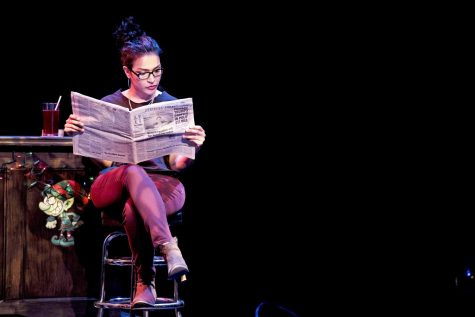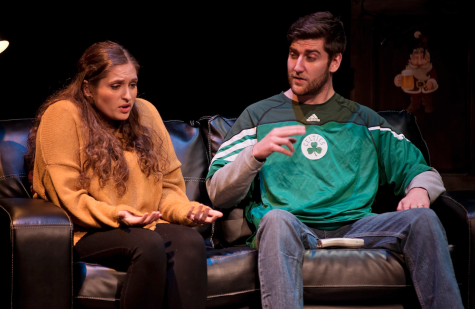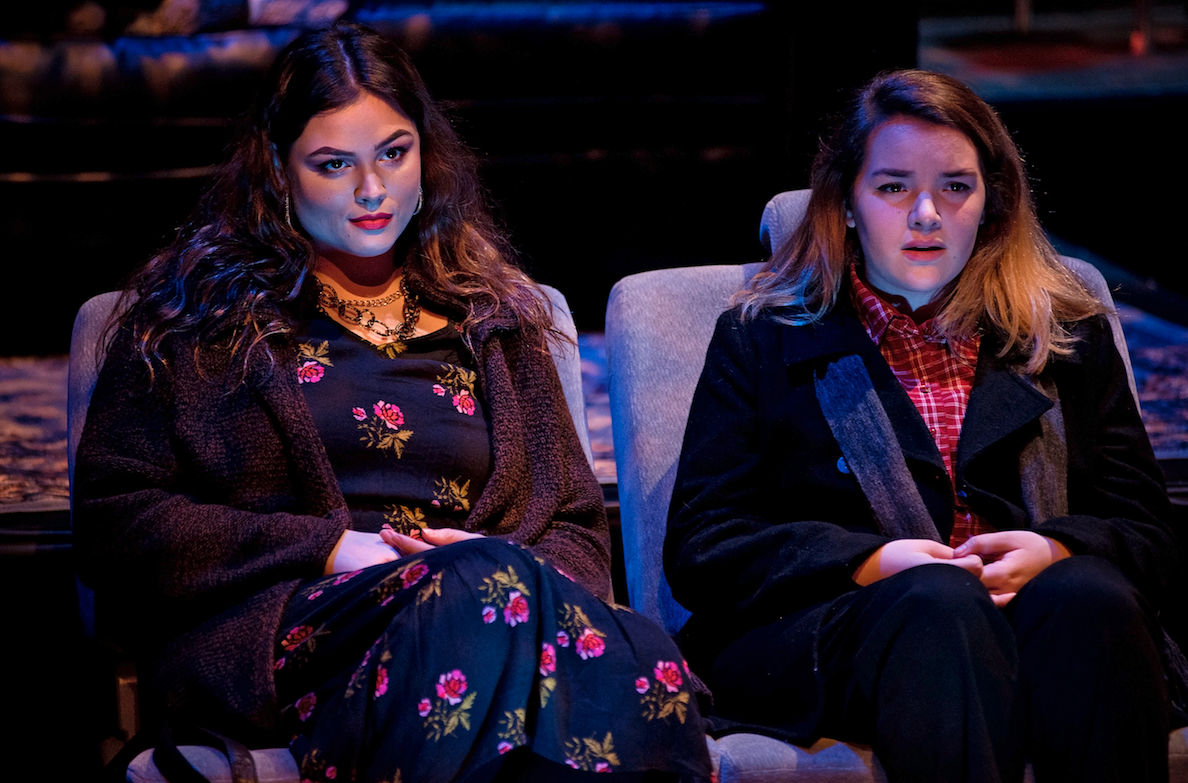Your donation will support the student journalists of Suffolk University. Your contribution will allow us to cover our annual website hosting costs.
It’s the end of the world as they know it
February 28, 2018
One of the greater flaws of human existence is the general apathy felt by those who are unsatisfied or disappointed with the turns life can present. This can be applied to any and all walks of life; as what humans experience can shape an outlook on life, personality and character. It’s easy to see why burying negative thoughts and memories, rather than dealing with them upfront, is a concept shared by millions worldwide. However, what Suffolk University’s Performing Arts Office (PAO) sets out to answer in their latest stage performance, is, “if the world was to end, should those thoughts and memories end alongside it, or should they be breached and solved in time for apologies and closure?”
Last Thursday, the PAO presented “Apocalypso,” a play by William Donnelly at Modern Theater, depicting an array of characters attempting to settle scores with one another before New Year’s Day. Between Christmas and New Years’ Eve, the characters have personal sets of issues to deal with in the event the world does actually end.
To open the show, a woman named Dora, played by sophomore theatre and history major Courtney Langlais, chants “I have a message!” The message being a simple one: the world is going to end.

As this proclamation travels around to the other characters, they all rush to settle their debts with one another before the New Year – but it is not so simple, due to a variety of intertwining relationships between the characters.
Boone and Gin, played by senior public relations major Donovan Skepple and freshman PPE major Ashley Ceravone, respectively, have to work out their differences after being separated. Dwight and Cal, played by freshman psychology and theatre double major Logan Ausmus and junior theater major Kiley Soulier, respectively, argue over Dwight’s whereabouts when he returns home late at night on a regular basis. Fran, played by sophomore journalism major Molly Rodenbush, is faced with telling Boone she has been secretly seeing Gin behind his back after their breakup.
In attempts to fix their unresolved issues before the New Year begins, the characters find themselves even more tangled up in problems amongst themselves than when they started. Fran comes clean to Boone about her relationship with Gin, Boone runs off with Fran’s sister Dora and Gin finds herself alone on New Years’ Eve only to spend time with her sister Cal.
To close out the show, the characters sit in their own cliques watching the ball drop. The stage, cleverly circled
with alarm clocks reading 12:00 as the New Year begins, goes dark over the sound of a church bell, ringing away like the old year.
The intertwining relationships between the characters produce a dramatic picture of the type of drama that can occur amongst large groups of people. A well-developed and sinister plot line of deception, lying and double-crossing, the show creates a true, realistic image of what trying to fix personal relationships really entails. Facing the distasteful aspects of romantic or platonic relationships that go ignored in regular life come to light in the face of Armageddon, facing them comes not only as a challenge to the characters, but come to go unresolved. A fictional story, but a possible reality.
Yet, the first half of the play tends to be confusing. The character relationships are not defined explicitly through dialogue until the latter portion of the show, leaving the audience

wondering who the characters are, how they are related and what significance they hold early on in the show. While there are multiple “Ah-Ha!” moments in the second half of the show, the first half is lackluster in structuring the intended plot and the relationships between the characters.
Then there’s Gus, played by freshman undecided major Patrick Galen Lovelace, a character who is all but obsolete for most of the show, only appearing in mostly booze-ridden rants about miscellaneous topics throughout the set. The character is only a key component to the plot towards the very end after returning to Fran’s apartment in search of Boone to return a wallet he stole from him in the beginning of the play, forcing Gin to realize she wants to work it out with Boone.
Disregarding the slow start and the lack of character development at times, “Apocalypso” shows the very harsh truth in a fictional setting: coming clean and fixing issues between close friends or family will never be a simple task.
